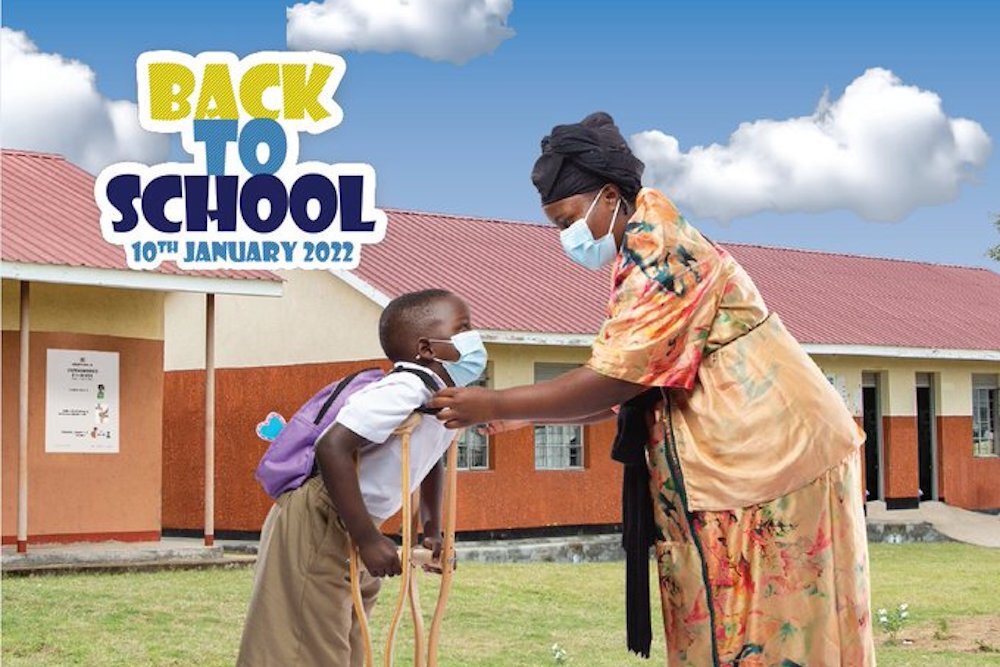
Five things you need to know this week about global education

Child marriage, Children in conflicts, Education in emergencies, Girls' education
The world's longest education shutdown has ended - plus an end to child marriage in the Philippines and plans for science labs in every Indian school.
Back to school after nearly two years
The world’s longest schools shutdown caused by the pandemic finally ended this week when classrooms reopened in Uganda after 83 weeks.
Millions of primary and secondary students were delighted that full, in-person learning is back. Rachael Nalwanga, 16, from Kayunga, said: “I am excited that I am going back to school. I have longed to go back so that I can achieve my dream of becoming an accountant.”
Everyone was due to restart classes a year above where they left off in March 2020 during the initial Covid-19 wave. But Ugandan officials expect a third of children who were in school will not return – many because they are working to help their families or have got married.
Fridah Namuganza wants to be back at school but instead she is working in a restaurant. She said: “Without being in school I might be tempted to get married. My friends right now are going back to school or preparing to. That thought sucks the energy out of me. I feel some despair and anger.”
To help tackle the learning crisis in Uganda, Save the Children has launched Catch-up Clubs. Aimed at children falling behind in Grades 3 to 5, after 12 weeks at least 80% of participants can read and write to a standard that allows them to learn independently.
Meanwhile, schools in Nepal will close for nearly three weeks after a spike in coronavirus cases, forcing more than seven million students to stay at home.
Child marriage banned in Philippines
The Philippines has made marriage under the age of 18 illegal – a move that could see more girls staying in school.
One in six girls there is married by the age of 17. But a new law means anyone found to have arranged or allowed a child marriage can be jailed for up to 12 years.
The parliament’s Deputy Speaker Bernadette Herrera said: “This law will help protect children, especially young girls, and hopefully change the trajectory of their lives.” Campaigners now hope the age of consent will finally be raised from 12 to 16.
Girls who marry before 18 are more likely to miss out on education. A 2019 report said marriage and other family reasons had overtaken poverty as the leading cause of girls dropping out of school in the Philippines.
Building blocks for girls’ education
Denmark and the LEGO Foundation have pledged more than $15 million to help more girls into education.
It will go to the Girls’ Education Accelerator, a specialised fund created in 2020 by the Global Partnership for Education (GPE) which has $176 million to support girls’ education in 30 countries where they lag behind in school enrolment.
The LEGO Foundation has now committed a total of $15 million to the accelerator and its funding will be matched by GPE.
LEGO Foundation CEO Anne-Birgitte Albrectsen said: “In many parts of the world, there is a need for a special focus on girls’ access to quality education. With this joint commitment, we can help make a real impact on girls’ lives.”
India’s plan for ‘smart classrooms’
A five-year education plan in India includes having science labs and “smart classrooms” equipped with digital equipment in every school, play-based learning and support for vocational education.
The Samagra Shiksha Abhiyan scheme looks at education as a whole, from pre-primary through primary and secondary schooling. It was launched in 2018 and has been extended until 2026.
The new plan has been sent to states for their feedback, according to the Times of India. The education ministry has called for a special module to help children make the transition to secondary school and bring down the dropout rate.
The plan also says all schools must have adequate toilets, drinking water and sanitary pad vending machines.
Blast near school kills eight children
Eight boys were killed and four injured when an old explosive device detonated near a school in Afghanistan.
Reports said an adult may have been cleaning an old mortar shell when it blew up in Nangarhar Province.
Alice Akunga, UNICEF Afghanistan Representative, said: “This incident underlines how important it is for the international community to support Afghanistan to clear explosive ordnance and remnants of war. Equally important is the need to educate children and their communities about the risks and the preventive measures to take.”
The UN says conflict in Afghanistan has killed more than 28,000 children since 2005.
More news

